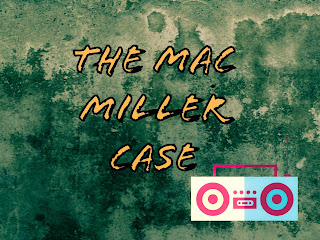Victims of the Criminal Justice System: How the System Creates Mental Illness
Each part of the criminal justice system has a particular goal to reach, the procedures that the specific entity uses to reach these goals has some significance, but also creates many residual effects. One of the most common results of the police departments, courts, and correctional facilities is the forcing (yes, forcing) of mental illness upon the offenders that they encounter. Additionally, the three parts of the system do little to counter-act their negative impact on society, this is mostly due to the lack of expertise and the easy availability of retention in regards to their occupations (recidivism and mental illness are like guns and police, they go together). Moreover, because of the use of coercion of mental illness upon offenders the system is able to not only maintain a client (criminal offender) but also verify that their actions (punishment) are valid and impossible to deem meritless.
Mental Illness: The Criminal Justice System’s Best Friend
When an offender enters the system the effects of mental illness occur immediately, the adjectives and nouns that come along with a person who are in an offender-like position are nothing positive (unless the offender thinks that they are, which is unusual). To suggest that these forms of negative thoughts and stereotypes are reasonable does have some merit, the act of deterrence is what is being proposed. However, with the so-called rehabilitation process that our system currently uses this idea of a never-ending title is terrible. When can an offender attain the acceptable stereotype that will help them live a life that is considered positive? The answer is they cannot. Police officers handcuffing and deeming them a criminal has the same inclination as the court’s rate of convictions or titles given to the offender, and certainly the authoritative display in the facilities that are run by the jackasses of the criminal justice system (corrections officers and correctional facilities). The constant titling of a person will breed a person to be whatever is being forced upon them. For example, when a police officer, judge/attorney or correctional officer is constantly referring to someone as a criminal then the options of becoming something other than this is minimal. This is where the maintaining of their jobs and actions as aforementioned are validated. If the goal of the criminal justice system was to actually rehabilitate the criminals then a criminal justice professional’s livelihood could end or be considered not as important. Furthermore, the constant mental battery that occurs is a way to allocate more funds to a specific element in the criminal justice system, suggesting that the people who enter the criminal justice system (criminals) are always going to have the same mentality gives a reason to hire more police officers, have more trials and convictions, and build more prisons/jails. Although this idea is ridiculous, it is a great way to solidify one’s occupation and guarantee that others will never have to worry about being rendered useless.
Lastly, the burdens that come with entering the criminal justice system create an atrocious effect on the criminals and society. Many mental illnesses are either enhanced or instilled and usually leads the person (criminal) to having so many issues that it may be impossible for them to engage in society in a beneficial way. This also brings up the topic that the criminal justice system is a cycle that overwhelms social service agencies and has no proper rehabilitation purposes, it only seems as if the system is participating in a humanistic fashion. All in all, the criminal justice system is a cycle that thrives on its own products; which is deeming a person a criminal, making them take on this stereotype, and then never letting them become an outstanding member of society; if there is such a thing.


Comments
Post a Comment